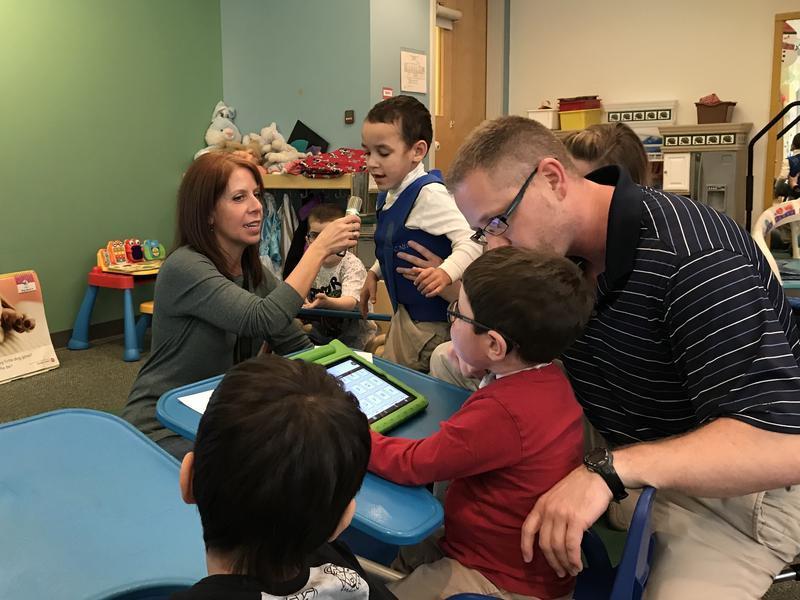Curriculum
School Structure
The Western Pennsylvania School for Blind Children is divided into three curriculum programs: Primary, Middle and Secondary.
Small class sizes of no more than eight students ensure students receive the individualized attention and instruction necessary to reach their fullest potential.
Classroom teams consist of a case manager, certified teacher of the visually impaired, occupational therapist, physical therapist, speech and language pathologist, orientation and mobility instructor, behavior support specialist, nurse and instructional aides.
Individualized Educational Program
Each student has an Individualized Educational Program (IEP) that is designed to meet his or her unique needs and abilities. The IEP helps teachers and related service providers understand student challenges and how they affect the learning process. The IEP identifies the unique ways each student learns and helps teachers and therapists structure an effective learning approach.
Assessments form the cornerstones of individualized educational programs. Teachers and therapists establish baselines for each student and then promote the acquisition of new skills. A variety of assessment tools are used to measure student achievement. Specified groups of students also participate in the Pennsylvania Alternate System of Assessment (PASA).
FOCUS: Functional Outcomes-based Curriculum for Unique Students
Because of the unique abilities of our students, we developed a specialized curriculum called FOCUS: Functional Outcomes-based Curriculum for Unique Students. FOCUS is used schoolwide with all enrolled students. Our teachers, therapists, and instructional aides work together to implement and support the curriculum throughout the school day.
The foundation of this curriculum comes from two sources: the Pennsylvania Core Standards and the Expanded Core Curriculum (ECC). FOCUS addresses core subjects (such as math, reading, history, fine arts, physical education, etc.) as well as the specific skill subject areas in the ECC, which include: social interaction, assistive technology, orientation and mobility, compensatory, recreation and leisure, self-determination, sensory efficiency and health. The ECC skills, in addition to the core curriculum, must be taught to promote greater independence and development.
The learning expectations and performance indicators found within FOCUS have been adapted from the Pennsylvania Department of Education Standards Aligned System, the Iowa Department of Education Expanded Core Curriculum and the Texas School for Blind and Visually Impaired Expanded Core Curriculum.
